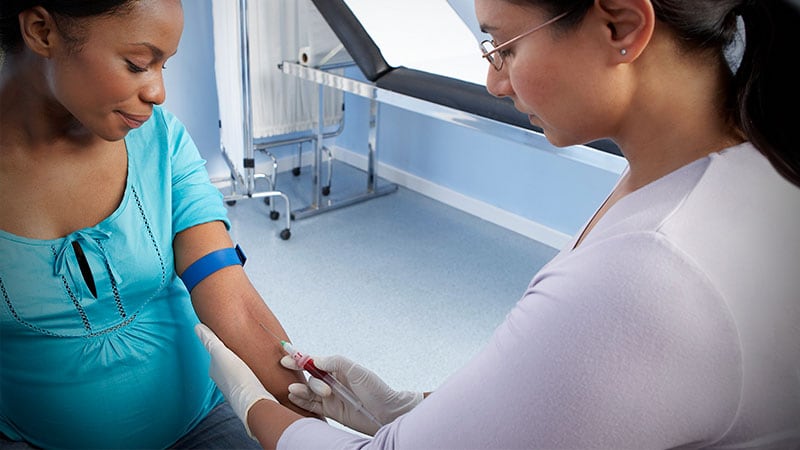German Government Discusses Noninvasive Prenatal Testing Regulations
Core Concepts
Regulating NIPT in Germany to ensure unbiased advice and ethical considerations.
Abstract
The German Bundesrat's health committee discussed the need for changes in noninvasive prenatal testing (NIPT) regulations. The current practice of fetal blood screening for trisomy 13, 18, and 21 under health insurance coverage has raised concerns about unbiased advice and ethical implications. The Senate of Bremen is advocating for common regulations for NIPT and the establishment of an interdisciplinary expert panel to review the legal, ethical, and health policy aspects. Physicians are facing challenges in providing clear indications for the test, leading to potential overuse and inadequate consultation time. Experts emphasize the importance of unbiased consultations to ensure independent decision-making by expecting mothers. The potential societal impact of increased termination rates due to NIPT results is also a significant concern, raising questions about how society supports families with disabled children.
German Government Discusses Noninvasive Prenatal Testing
Stats
In the third quarter of 2022, the NIPT test was invoiced more than 50,000 times in Germany.
Physicians can bill four short discussions of 5 minutes each for the NIPT consultation.
Quotes
"The consultation is especially important for NIPT, because it is the only way to be sure that the expecting mother has come to the decision freely and independently, and not just as a result of internalized social expectations." - Giovanni Maio, MD, PhD
"If the test goes on to show evidence of a genetic variation, the parents first plunge into a deep chasm because they also only see the findings from a medical perspective, as a problem that should be avoided." - Sarah Manteufel
Key Insights Distilled From
by Christian Be... at www.medscape.com 06-09-2023
https://www.medscape.com/viewarticle/993006
Deeper Inquiries
How can society better support families with disabled children to ensure a good quality of life?
Society can better support families with disabled children by implementing various measures. Firstly, there should be increased access to support services such as counseling, therapy, and educational resources tailored to the specific needs of the child. This can help families navigate the challenges associated with raising a disabled child and ensure they receive the necessary care and assistance. Additionally, promoting inclusivity and acceptance in communities can help reduce stigmatization and discrimination against disabled individuals, creating a more supportive environment for families. Providing financial assistance and benefits to families with disabled children can also alleviate some of the financial burdens they may face. Overall, fostering a culture of empathy, understanding, and support within society can significantly improve the quality of life for families with disabled children.
How can healthcare providers ensure unbiased consultations for expecting mothers facing NIPT decisions?
Healthcare providers can ensure unbiased consultations for expecting mothers facing NIPT decisions by following certain guidelines and best practices. Firstly, it is essential for providers to offer comprehensive and accurate information about the test, including its benefits, limitations, and potential outcomes, in a clear and understandable manner. This information should be presented in a neutral and non-directive way, allowing the expecting mother to make an informed decision based on her own values and preferences. Additionally, healthcare providers should be trained to recognize and address any biases or personal beliefs that may influence their counseling, ensuring that the information provided is objective and free from judgment. Encouraging open and honest communication, actively listening to the concerns and questions of the expecting mother, and respecting her autonomy in decision-making are also crucial aspects of ensuring unbiased consultations. By upholding these principles, healthcare providers can support expecting mothers in making decisions about NIPT that are truly in line with their own wishes and values.
How can measures be implemented to prevent NIPT from becoming a routine screening examination?
To prevent NIPT from becoming a routine screening examination, several measures can be implemented. Firstly, clear guidelines and criteria should be established regarding when the test is appropriate and necessary, ensuring that it is not used indiscriminately or as a default option for all pregnancies. Healthcare providers should be educated and trained on these guidelines to ensure that NIPT is only recommended in cases where there is a specific medical indication or risk factor. Additionally, regulatory bodies and policymakers can play a role in setting limits on the use of NIPT and monitoring its implementation to prevent overutilization. Public awareness campaigns can also help educate the general population about the purpose and limitations of NIPT, dispelling misconceptions and promoting informed decision-making. By implementing these measures, NIPT can be used judiciously and responsibly, avoiding the risk of it evolving into a routine screening examination.
0
More on Healthcare
